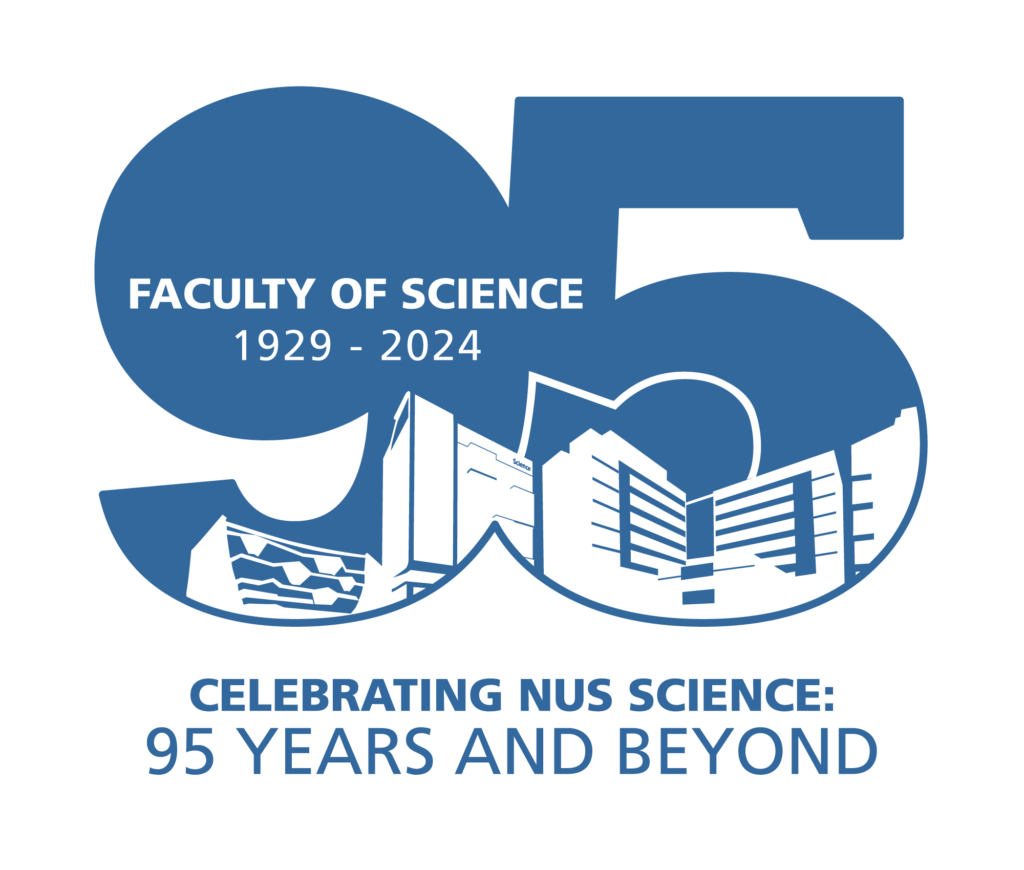Our Speakers
Meet our science experts and join them in their forays into cutting-edge research and innovation. Our students will share on the impact of initiatives they lead and our alumni will provide insights into their journeys as successful entrepreneurs. Don’t miss this opportunity to engage and learn more from our science community!
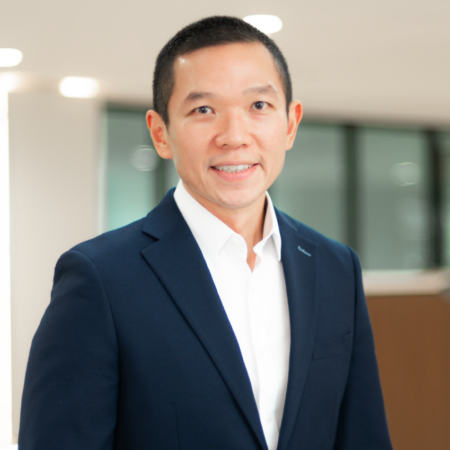
Prof Koh Lian Pin
Associate Vice President and Chief Sustainability Scientist, NUS
Vice Dean (Research), Faculty of Science
Director, Centre for Nature-based Climate Solutions
Prof Koh is NUS’ Associate Vice President and Chief Sustainability Scientist, leading sustainability research and fostering collaborations across sectors to address climate change and biodiversity loss. He holds multiple roles within NUS, including Professor of Conservation and Director of NUS’ Centre for Nature-based Climate Solutions. With over 20 years of experience, he is a highly cited conservation scientist, contributing to policy-relevant science and advocating for environmental protection on global platforms like United Nations conferences and TED talks. Prof Koh holds a BSc and MSc in Biological Sciences from NUS and a PhD in Ecology and Evolutionary Biology from Princeton University.
Realising the potential of nature-based solutions for biodiversity and carbon conservation
Nature-based solutions have the potential to address climate change and biodiversity challenges. However, successful outcomes may require careful consideration of implementation approaches, stakeholder interests and local contexts. This talk will discuss the promises of nature-based climate solutions, while acknowledging their inherent limitations in practice. It will also show how socially-engaged research may better inform and support decision-making for biodiversity and carbon conservation.
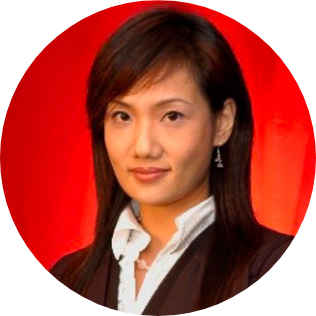
Assoc Prof Stella Tan
Assistant Dean (Undergraduate Studies), Faculty of Science
Associate Provost (Student Conduct), Office of the Senior Deputy President and Provost, NUS
Assoc Prof Tan has postgraduate academic qualifications in law, forensic science and science. She was previously Deputy Senior State Counsel, Attorney-General’s Chambers and Director (Prosecution and Legal Policy) at the Health Sciences Authority (HSA), where she provided legal advice and practical training to forensic experts. She has co-authored papers on stem cell research, therapeutic cloning and germline modification for the National Bioethics Advisory Committee. She has received consecutive Dean’s Meritorious Teaching Awards. Currently she is Associate Provost (Student Conduct) at the Office of the Provost, NUS, Assistant Dean (Undergraduate Studies), Faculty of Science and Director of NUS’ Forensic Science Programme.
Where technology meets innovation: The power of Technology-Enhanced Learning
Discover how Technology-Enhanced Learning (TEL) is transforming the way we learn, teach and solve real-world problems. From virtual and augmented reality crime scenes, gamification to three dimensional (3D) reconstructions, explore the cutting-edge tools redefining forensic science education. This talk will share how TEL fosters immersive learning experiences, real-world preparation, cost-effective training and enhanced collaboration. Join us to reimagine the possibilities of science education and inspire the next generation of students!
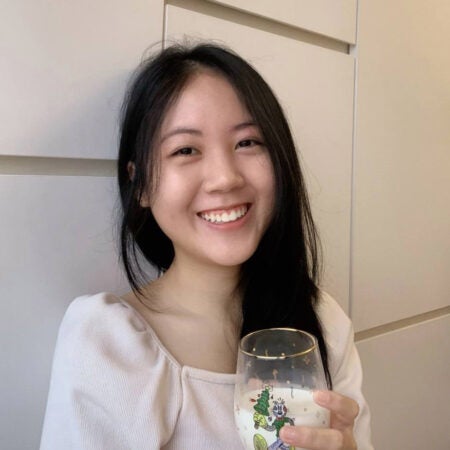
Ms Kwok Jing Lin
Department of Food Science and Technology
Ms Kwok is a Year 4 Food Science and Technology (FST) student who is passionate about food safety and security. In her first year, she was the Project Director for NUS FoodTech Challenge, expanding it to an international level for the first time. Thereafter, she undertook a year-long research project on food safety and spoilage, interned at the Singapore Food Agency (SFA) and did an exchange at the Wageningen University & Research in the Netherlands. She is currently completing her final year internship at Food Industry Asia. As a recipient of the Singapore Sustainability Scholarship, she will join SFA after graduation.
Empowering student innovation: The NUS FoodTech Challenge
In this keynote, Ms Kwok will share how the NUS FoodTech Challenge (FTC) has evolved into a global platform for student innovation, addressing real-world problems faced by the food industry. She will introduce NUS FTC, highlighting its alignment with real-life industry challenges and global food technology trends. She will also cover the competition’s progress and achievements, including the contributions of key stakeholders and participant statistics that showcase the initiative’s growth and influence. She will conclude with reflections on the local and international impact of the challenge, demonstrating how it has positively shaped student lives across the globe.
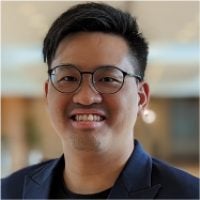
Dr Goh Wei Jiang
Co-Founder and Chief Executive Officer
Craft Health
Dr Goh is the Co-Founder and Chief Executive Officer of Craft Health, where he oversees business development and investor relations. He is the key driver of the company’s funding and commercialisation and has raised more than S$3.2 million from institutional investors. Dr Goh’s research interests include formulation science and bionanotechnology. He has published more than 10 peer-reviewed research articles and holds several patents. He is an alumnus of NUS Pharmacy, where he received a Singapore General Hospital Mid-Term Scholarship to practice as a registered pharmacist, as well as an NUS Graduate School of Integrative Sciences and Engineering PhD-MBA scholar.
The Craft Health journey
In this talk, Dr Goh will share how he and his co-founder translated their vision into a company that has revolutionised healthcare, by being the first 3D printing company in Singapore and Southeast Asia to personalise pharmaceuticals and nutraceuticals for consumers. From the company’s genesis until today, Dr Goh will delve into how NUS research laid the groundwork for the company’s pioneering technologies, the entrepreneurial attributes that transformed an idea into a commercially viable and successful innovation, as well as the importance of continuous learning.
Parallel Sessions: Physical Sciences
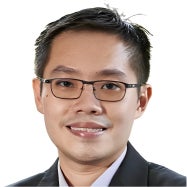
Assoc Prof Koh Ming Joo
Department of Chemistry
Assoc Prof Koh’s research focuses on developing sustainable and practical catalytic solutions that address critical challenges in chemical synthesis through base metal catalysis and radical cross-coupling. His work is internationally recognised and has won him numerous research awards, including the Novartis Early Career Award in Chemistry (2023) and Mitsui Chemicals Catalysis Science Award for Creative Work (2024). He received his BSc (Hons) in Chemistry and Biological Chemistry from Nanyang Technological University before heading to Boston College, USA, for his PhD and postdoctoral studies. He joined the Department of Chemistry, Faculty of Science as a President’s Assistant Professor and is currently a Dean’s Chair Professor and Deputy Head (Research) at the department.
Sustainable carbohydrate synthesis
Unprotected carbohydrates play indispensable roles in everyday life, ranging from biological processes to nutrition, drug discovery and cosmetic product development. However, traditional chemical synthesis of carbohydrates relies on laborious protecting-group strategies involving multiple steps, harsh reagents and reaction conditions, consequently leading to excessive waste generation. This talk will highlight our recent discovery of a bioinspired concept that harnesses photochemistry to directly transform native sugars into diverse saccharides and glycoproteins in one process. This protecting-group-free technology promotes sustainable carbohydrate synthesis with far-reaching applications in glycoscience.
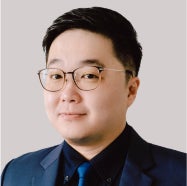
Dr Francis Chong
Department of Chemistry
Dr Chong is a firm advocate of student-centric education. He strives to make learning personalised, flexible and inclusive by integrating blended learning and peer instruction. His goal is to empower students to become self-directed lifelong learners capable of making positive societal changes and solving complex real-world problems. He also seeks to establish a psychologically safe and inclusive learning environment where students feel supported and valued. He has received multiple teaching awards, including NUS’ Annual Teaching Excellence Award (2017, 2023), the Faculty Teaching Excellence Award (2017, 2020, 2022), the Faculty Award for Mentorship Excellence (2022) and the NUS Achievement Award (2023).
Empowering students: Personalised and inclusive education
How do we make learning more personalised, engaging, and inclusive for students from diverse academic backgrounds? This talk will cover the operationalisation of blended learning in CM1102 Chemistry – The Central Science, using evidence-informed strategies. By meaningfully integrating online and face-to-face learning experiences, we can empower students to take ownership of their learning while fostering a psychologically safe and supportive learning environment. Join us to explore student-centric approaches that deepen engagement and create a more holistic, impactful learning experience.
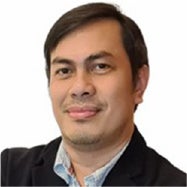
Prof Ariando
Department of Physics
Prof Ariando is a Provost’s Chair and Deputy Head of NUS’ Department of Physics. He leads a research group focused on functional quantum materials and devices, with a particular emphasis on strongly correlated electron systems, two-dimensional materials and their heterostructures, employing a material-by-design approach. His team has made groundbreaking discoveries in heterostructures, unveiling new emergent phenomena and topological states. His research has been recognised with numerous awards, including the Institute of Physics Singapore (IPS) Omicron Gold Medal, Centre National de la Recherche Scientifique-Laboratoire National des Champs Magnétiques Intenses (CNRS-LNCMI) NEXT Investigatorship (2016-2017), Faculty of Science Young Researcher Award (2013), Outstanding Scientist Award (2021), the inaugural Faculty Award for Mentorship Excellence (2023) and the Provost’s Chair (2024 – 2027).
Nickel age of high-temperature superconductivity
Superconductivity is a remarkable physical phenomenon where certain materials can conduct electric currents with zero resistance when cooled below a specific critical temperature. This ability to conduct electricity without resistance makes superconductors valuable for various applications, including magnetic resonance imaging, particle accelerators, magnetic levitation devices and potentially for power transmission and quantum computing. However, the very low operating temperatures needed for most superconductors limit their widespread practical use. To date, the highest operating temperature of superconductivity at ambient conditions remains in oxide compounds containing copper, the cuprate. This talk will present the discovery of the first high temperature superconductor in an oxide compound without copper, with a superconducting transition temperature at ambient pressure – surpassing the initial achievement of copper oxides.
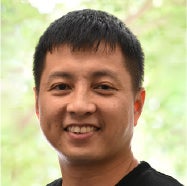
Mr Lum Chune Yang
Co-Founder and Chief Executive Officer
SpeQtral
Mr Lum is Co-Founder and Chief Executive Officer of SpeQtral, a spinoff company from NUS’ Centre for Quantum Technologies (CQT) that develops and commercialises space-based quantum communication systems to secure existing communication networks with an additional quantum-secured encryption layer. He was previously Head of Strategic Development at CQT and held a concurrent appointment in NUS where he was responsible for engaging the industry and government stakeholders in commercialising quantum technologies. Prior to CQT, he oversaw business development in the Asia Pacific for SES, a global satellite operator. He holds a BSc in Physics from NUS, MSc from the Pennsylvania State University, USA and an MBA from INSEAD (Institut Européen d’Administration des Affaires).
From physics to entrepreneurship
Most students choose to study fundamental physics out of curiosity to understand Nature and figure out how and why things work. They are less focused on how these insights can be applied to real-world problems. Some students might ask what they might do with a physics degree when confronted with the practicalities of finding a job afterwards. In this talk, Mr Lum will share his journey and joy in physics, layered with practical career decisions and how he tries to find a balance with his entrepreneurial endeavours.
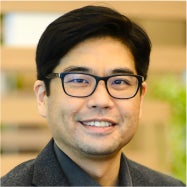
Asst Prof Brandon Morinaka
Department of Pharmacy and Pharmaceutical Sciences
Asst Prof Morinaka was trained in marine natural products chemistry. He obtained his BSc in Chemistry from the University of California Santa Cruz, USA and PhD in Chemistry from University of California San Diego, USA. He then carried out postdoctoral research in genome mining and biosynthesis of natural products at the University of Bonn, Germany and ETH Zurich, Switzerland. His current research interests are in post-translational modifying enzymes from the radical SAM (S-adenosyl-L-methionine) superfamily.
New approaches for antibiotic discovery
Multidrug-resistant bacterial pathogens pose a serious threat to human health. Natural products such as penicillin are an important source of antibiotics to treat infections. However, over the last few decades, resistance to several classes of antibiotics has emerged while there have been few new antibiotics approved for use. To address this problem, we use an integrated approach combining genome mining, synthetic biology and natural product chemistry to identify new antibiotics with promising activity against the highest priority pathogens. This approach will be presented, along with the potential for future therapeutic discovery in this field.

Assoc Prof Lu Jiong
Department of Chemistry
Assoc Prof Lu received his bachelor’s degree in Chemistry from Fudan University, China and PhD from NUS. Thereafter, he was a postdoctoral fellow at NUS’ then Graphene Research Centre and at the University of California, Berkeley, USA. His current research interests include atomic-scale materials design and investigation of atomic-scale quantum nanoscience in future materials, and atomic-precision catalysis for sustainable manufacturing. His group has published over 140 peer-reviewed papers, with over 30 of these in the prestigious Nature / Science journals. He was named to the Journal of Materials Chemistry A Emerging Investigators (2019) and received the Faculty’s Young Scientist Award (2021) and NUS’ Young Researcher Award (2022). He also serves on the editorial board of several international journals.
Atomic-scale chemistry, physics and future materials
Sixty years ago, Richard Feynman’s seminal talk envisioned the possibilities of atom-by-atom assembly, laying the groundwork for nanoscience and nanotechnology. Utilising atomic-scale chemistry to engineer novel functional materials, otherwise challenging to produce, has profound implications in the development of cutting-edge nanodevices and nanocatalysis. This talk will introduce atomic probe microscopy and on-surface chemistry, which allow for the atomic fabrication of novel organic quantum nanostructures with atomic precision and submolecular resolution characterisation. These advances in strides in precise synthesis and development of advanced materials represent a significant leap beyond conventional design methods, paving the way for a transformative shift in the development of next-generation nanodevices and catalysis.
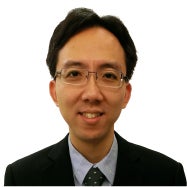
Dr Chan Taw Kuei
Department of Physics
Dr Chan‘s research interests include authentic learning in undergraduate and postgraduate contexts, as well as the role of teacher immediacy in the enhancement of students’ motivation to learn. His current research is on educational technology development: using weatherman-style chroma key composite videos in online and hybrid lectures to improve the students’ learning experience and learning outcomes.
Motivation and workload in teaching and learning
Motivation and workload are significant modifiers of the quality of learning in students and may determine whether the intended outcomes of a course are achieved. The level of motivation to learn influences the approaches, attitude and effort invested towards learning tasks. The perception of workload affects the motivation to learn and is heavily influenced by the perceived task complexity and the time for completion. These two concepts share a complex interplay relationship with each other, potentially forming a cyclical feedback loop that may positively or negatively impact learning outcomes. In this talk, we will share a framework that integrates these concepts while considering the separate perspectives from students and educators.
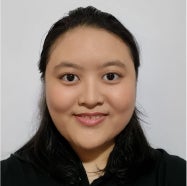
Ms Teo Shin Rei
Department of Pharmacy and Pharmaceutical Sciences
Ms Teo, a Year 3 Pharmacy student, led the NUS Pharmaceutical Society’s Youth Expedition Project, Dispense a Dream, in the summer of 2024, on a project to enhance healthcare and education in Kampong Chhnang, Cambodia. As Project Director, she oversaw a team of volunteers and collaborated with local and overseas organisations in Cambodia to improve community health literacy and the quality of care provided at local health centres, and empower healthcare professionals to better serve their communities. Her team also developed a series of topics to share that addressed the specific needs of the Cambodian communities, such as health and hygiene tips for primary school students.
Overseas volunteering: Giving back to the community
In Academic Year 2023 / 2024, the NUS Pharmaceutical Society Youth Expedition Project Dispense a Dream brought a team of students to Cambodia, to provide unique exposure to volunteering abroad while immersing in the local culture at the same time. For this annual endeavour, the preparatory work takes a year, with variations in the places and activities conducted. The project involves collaborations with local and overseas partners to reach out to healthcare staff and students, for smooth execution of the project. The talk will highlight the challenges, learnings and achievements of previous to current projects, and illustrate its impact – on the community and as well as on personal growth.
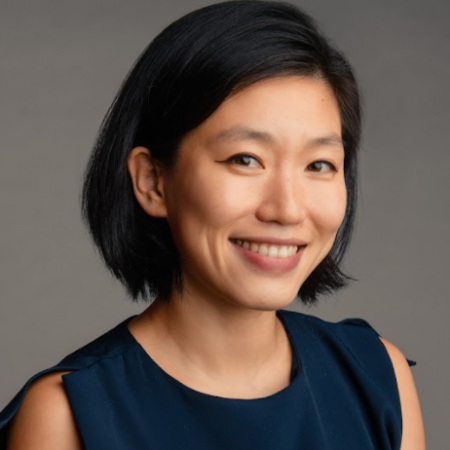
Asst Prof Yvonne Gao
Department of Physics
Asst Prof Gao leads the research effort on building innovative hardware building blocks for future quantum computers. Her work has made broad and significant impact on pushing the frontiers of quantum technologies. She is also a passionate community-builder, spearheading several initiatives to inspire and empower the next generation of young scientists. Her contributions to advancing quantum computing technologies have earned her many accolades, such as the Singapore National Research Foundation (NRF) Fellowship (2020), MIT Technology Review’s Innovators Under 35 (Asia Pacific) award (2020) and the Young Scientist Award (2021).
Probing quantum effects with superconducting electrical circuits
From Heisenberg uncertainty relations to quantum entanglement of particles, the world of quantum physics has many fascinating concepts that challenge our intuitions constantly. Thanks to scientific developments over the past century, we have become increasingly well-versed not only in understanding quantum physics, but also in manipulating and building tangible technologies out of it. This talk will go through how we use carefully-designed electrical circuits cooled to very low temperatures to explore and interact with the quantum world. With these devices, we bring concepts such as superposition and entanglement to life in the laboratory and harness these unique quantum features to perform computational tasks.
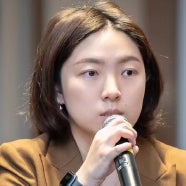
Dr Jin Xiaoxuan
Co-Founder
AuroraFood
Dr Jin co-founded AuroraFood in 2020, a startup focused on developing low glycemic index (GI) bakery products. In 2023, she launched YU Cookies, a specialty cookies brand which has quickly become popular in Singapore amongst both tourists and local consumers during festive seasons. She is committed to producing cookies that are healthy, premium and locally made, and aspires to make YU Cookies a successful gifting brand. Dr Jin earned her bachelor’s degree in Food Science and Technology from NUS as well as her PhD in Food Science.
Learning on the go: A startup journey
In this talk, Dr Jin will share on her journey co-founding food technology startup AuroraFood and launching her cookie brand YU Cookies. After her PhD in Food Science, she decided to embark on the entrepreneurial pathway, driven by a passion for innovation in the food industry. Initially focused on business-to-business (B2B) sales, the startup faced challenges in securing leads. This led her to pivot to the business-to-consumer (B2C) market, with a unique cookie brand. In this session, Dr Jin will share how she seized opportunities, overcame hurdles and lessons learned along the way.
Parallel Sessions: Life Sciences
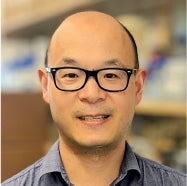
Assoc Prof Sun Ji
Department of Biological Sciences
Assoc Prof Sun Ji received his PhD from the University of Washington, USA, where he studied plant nitrate absorption and determined the first eukaryotic nitrate transporter structure. He then pursued postdoctoral training at The Rockefeller University, USA, where he characterised a critical ion channel for cardiac function and heart rhythm. Thereafter, he joined St Jude Children’s Research Hospital, USA, where he employed structural biology and cell biology approaches to understand key molecules in human health and diseases, for the development of therapeutic approaches. In 2024, he moved his laboratory to NUS’ Department of Biological Sciences, Faculty of Science, where he continues his research in understanding human disease to provide novel treatment strategies.
Molecular insights for targeting Parkinson’s disease
Parkinson’s Disease (PD) is the second most prevalent neurodegenerative disorder, affecting roughly 1% of those over 60 and 4% of those over 80. As at 2019, approximately 8.5 million people globally were living with PD. The disease results from a combination of genetic and environmental factors, with no effective treatment available to date. A key genetic factor is the mutation in the LRRK2 (leucine rich repeat kinase 2) gene. In his talk, Prof Sun will cover how research in his laboratory focuses on understanding how LRRK2 mutations lead to PD and the creation of targeted therapies aimed at this gene that offer new hope to PD patients.
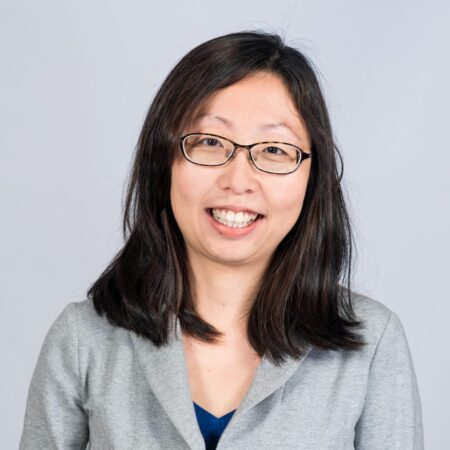
Dr Liu Mei Hui
Department of Food Science and Technology
Dr Liu graduated from the pioneering batch of NUS’ Food Science and Technology Programme. Following a PhD in Molecular Biology, her multidisciplinary research work has brought her on many scientific adventures in the fields of molecular biology, nutrition and genomics. She is a recipient of multiple teaching awards and continually explores effective and scalable methods for providing meaningful feedback in large-class settings for students from diverse backgrounds. She is also an Associate Director at the NUS Centre for Teaching, Learning and Technology.
Creating ways for self-regulated learning through peer feedback designs
Student learning can be enhanced through useful feedback. However, providing feedback is time consuming and the usefulness of feedback is not always apparent to both students and teachers. In addition, while the entire process has multiple components that can foster valuable learning opportunities, these sub-components are often not well investigated. This talk will share course design considerations which will allow us to scale feedback for students, even in large classes, and also allow students to self-regulate their learning process within the peer feedback exercise.
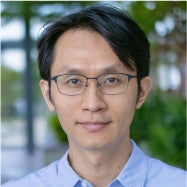
Assoc Prof Lau On Sun
Department of Biological Sciences
Assoc Prof Lau’s research group focuses on studying how external signals impact cell fate, using the development of stomatal guard cells in plants as a model. He received his BSc and MPhil degrees in Molecular Biotechnology from the Chinese University of Hong Kong and subsequently, his PhD studies in Molecular, Cellular and Developmental Biology from Yale University, USA. After completing his postdoctoral research at Stanford University, USA, he joined NUS as an Assistant Professor in 2016. Currently he is Assistant Head (Research and Graduate Matters) in the Department of Biological Sciences, Faculty of Science and Associate Director of NUS’ Centre of Sustainable Urban Farming.
How plants control their breathing for growth and resilience
Plants, like all living organisms, must adapt to their environment to survive and thrive. A key adaptation involves controlling their “breathing” through stomata – tiny pores on their leaves that regulate gas exchange. Besides managing the opening of stomata, plants also finely tune their production, ensuring they can respond to varying environmental conditions. By understanding the mechanisms behind these stomatal behaviours, we can gain deeper insights into fundamental biological processes and develop innovative strategies to enhance crop productivity and sustainability. This talk will explore these vital mechanisms and discuss their implications for food security in a world facing growing environmental challenges.
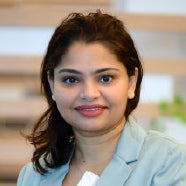
Asst Prof Shruti Bhatt
Department of Pharmacy and Pharmaceutical Sciences
Asst Prof Bhatt holds a PhD in Molecular Pharmacology from the University of Miami, USA. Her research focuses on overcoming drug resistance in cancer therapy using functional and genomic approaches, with a key technology being the BH3 profiling assay, which measures cancer cells’ proximity to apoptosis. During her postdoctoral training at Dana-Farber Cancer Institute, she led efforts to predict response to leukaemia therapy using BH3 profiling. She has received numerous fellowships and awards, including the Leukemia & Lymphoma Society Career Development Program Fellow Award, the American Society of Hematology Global Research Award, the American Association for Cancer Research NextGen Stars Award, and the European Molecular Biology Organization Global Investigator Award.
Decoding cell death priming mechanisms in blood cancer therapy resistance
In recent years, targeted therapies have cemented their place as one of the most attractive treatment tools for acute myeloid leukaemia (AML). These medicines specifically block signals that tumour cells use to grow and spread, while leaving normal cells unharmed. However, their benefits are often only temporary as over time, many leukaemia cells become resistant to treatment and begin to grow again. We employed our newly developed tool called dynamic BH3 profiling, where we briefly treated leukaemia cells of mouse models that became venetoclax-resistant to a panel of drugs and measured apoptotic signalling to identify new drugs that could overcome resistance. Building on these findings, we now combine our expertise in functional technology and mouse modelling skills to identify how leukaemia resistance originates, which the signalling-resistant cells rely on for their survival and how drug sensitivities change during leukaemia resistance.
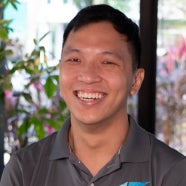
Mr Kit Yong
Founder
Forte Biotech
Mr Yong is the founder of Forte Biotech, a biotechnology startup that provides molecular diagnostic solutions for prawn farmers across Southeast Asia, allowing them to identify and treat diseases in their own farms. Under his leadership, the company has raised over S$1 million in funding from investors. In 2023, it was named the winner of the Net Zero Challenge, a competition organised by Touchstone Partners and the Temasek Foundation. In recognition of his major contributions to the agritechnology industry, he was named in this year’s Forbes 30 Under 30 in Asia. He is an alumnus from NUS Life Sciences.
Life after Life Sciences: Entrepreneurship and everything else
Starting with a Life Sciences degree from NUS and later founding Forte Biotech, Kit will dive into how his academic background helped him pivot into entrepreneurship across various sectors, including e-commerce, hospitality and finally, aquaculture diagnostics. Come away with insights into how to leverage scientific skills in business, the importance of adaptability and innovation in building a startup, and most importantly, how to survive the real world with a Life Sciences degree.
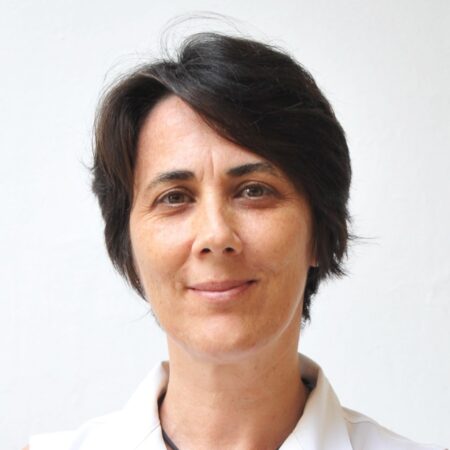
Prof Antonia Monteiro
Department of Biological Sciences
Prof Monteiro’s research interests lie in the emergence of novel complex traits in organisms, with a special focus on the evolution and development of butterfly wing colour patterns. She received her BSc from the University of Lisbon, Portugal and her PhD from the University of Edinburgh, Scotland. She did postdoctoral work at Harvard University, USA and Leiden University, Netherlands, and held faculty positions at the University of Buffalo, USA, Yale University, USA and Yale-NUS College in Singapore.
Butterfly wing surfaces: Different colours and patterns
Natural and sexual selection have been shaping the colours and patterns on the wings of butterflies for millions of years. The result of these, often antagonistic, selection pressures has been the evolution of distinct patterns on dorsal and ventral surfaces, on fore and hindwings, and in males and females. This optimisation is believed to offer maximum protection from predators while still attracting the opposite sex. This talk will delve into some of the genetic and developmental wizardry that butterflies use to achieve this result.
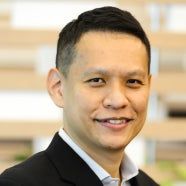
Assoc Prof Ho Han Kiat
Department of Pharmacy and Pharmaceutical Sciences
Assoc Prof Ho is NUS’ Dean of Students. He received his BSc (Hons) in Pharmacy in NUS and his PhD in Medicinal Chemistry from the University of Washington, USA. In 2009, he started his own research programme in NUS, exploring various aspects of liver diseases, including the management of drug-induced liver toxicity, liver fibrosis and liver cancer. In recent years, he also interfaced the use of nanomaterials to explore the impact on liver regeneration as well as in nanotoxicology. He has published more than 100 papers in internationally recognised journals and won multiple university-level teaching excellence awards, including the Outstanding Educator Award (2020). He is Vice President of the Toxicology Society of Singapore and a diplomate of the American Board of Toxicology since 2018.
Is graded class participation good? (Taking a Socratic response to the question)
It is well-accepted in higher education that class participation fosters interactive learning, enriches classroom dynamics and promotes a learner-centric culture. But what if grading is added to the participation? Does it enhance student engagement, thereby making this exercise better? Or does it generate a more insidious consequence that cautions against its indiscriminate application? To tackle this question head-on, a university-wide survey was conducted on 73 NUS students across different faculties / schools, to probe their sentiments and uncover the perceived impact on their learning. The observations were then cross-examined by 15 faculty members to complete a Socratic inquiry of this question. The key findings will be shared to help you draw your own conclusions.

Ms Sam Shu Qin
Co-Founder
Our Singapore Reefs
Ms Sam is a dedicated marine conservationist with a strong focus on restoring coral reefs in Southeast Asia. Her work spans across research projects that have enhanced biodiversity in artificial structures. She develops techniques to rehabilitate degraded coral reefs in urbanised marine environments and collaborates with various coastal communities on coral restoration initiatives. Her passion for marine conservation is complemented by her expertise in science communication, which she leverages to inspire greater marine stewardship among diverse audiences.
Engaging communities in conservation
In this talk, Sam shares her journey with Our Singapore Reefs, a community-led initiative dedicated to empowering communities through coral restoration, dive cleanups and marine education. She will highlight how the initiative supports diverse conservation partners and assists coastal communities in rebuilding their reefs. Through these efforts, Our Singapore Reefs aims to cultivate a deep appreciation and connection to our natural heritage within the community, demonstrating the crucial role of community engagement in marine conservation and how collaborative efforts can effectively contribute to the preservation of our oceans.
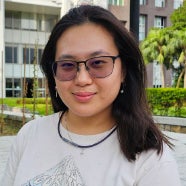
Ms Tay Rui En
Department of Biological Sciences
Ms Tay, a Year 3 Environmental Studies student, is the President of BES Drongos, a nature guiding group. She has a deep-rooted passion for wildlife, particularly avian species. In her role, she seeks to foster greater appreciation of nature and biodiversity in Singapore by engaging the community to raise awareness about environmental issues. She is also committed to integrating scientific research with practical conservation efforts. Through her work, she hopes to contribute to the preservation of biodiversity, inspire others to connect with nature and encourage collective efforts towards achieving a sustainable future.
BES Drongos: 10 years of community outreach
Rui En will touch on the history of BES Drongos over the past 10 years since its formation in 2014. She will be sharing on the guided nature walks that have been conducted over the years, as well as the challenges faced, particularly during the pandemic. She will also delve into BES Drongos’ outlook and goals in the future.
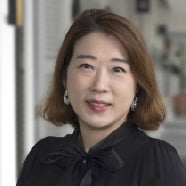
Asst Prof Kim Jung Eun
Department of Food Science and Technology
Asst Prof Kim earned her PhD in Nutritional Sciences at the University of Connecticut, USA. She further completed a dietetic internship at Yale-New Haven Hospital, USA to become a registered dietitian. She is a nutrition scientist with advanced training in dietetics and human clinical research. Her long-term research goal is to develop and validate dietary strategies and recommendations that effectively protect against age-associated chronic diseases and promote public health.
Healthy diets for healthy hearts
Cardiovascular diseases (CVDs) are a leading cause of death globally. A healthy diet, particularly with fruits and vegetables, reduces CVD risk. This effect may be attributed to carotenoids, one of the bioactive compounds found in fruits and vegetables. Carotenoids have protective effects against CVDs due to their antioxidant and anti-inflammatory properties. Since humans are unable to synthesise carotenoids, carotenoids must be obtained through the diet. However, as the absorption of carotenoids after consumption is generally low, consuming dietary fats can improve absorption. This talk will cover the protective role of carotenoids against CVDs and consider the bioavailability of carotenoids in evaluating their roles in CVD protection.
Parallel Sessions: Mathematical Sciences
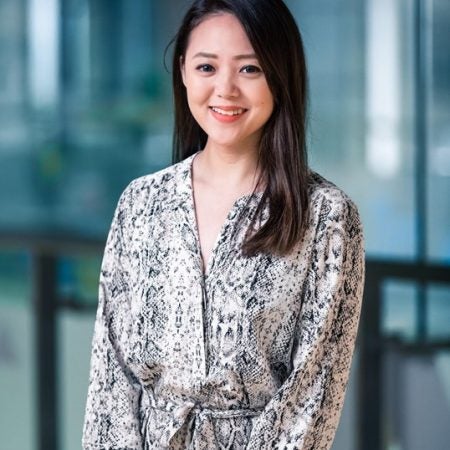
Ms Joyce Tay
Co-Founder and Chief Strategy Officer
StartupX
Ms Tay is the Chief Strategy Officer at StartupX, an innovation consultancy she co-founded in 2018 following a decade growing Startup Weekend, one of the largest startup communities in Southeast Asia. At StartupX, she and her team pioneered the pre-accelerator model for early-stage startups in Asia and launched the world’s first global sustainability hackcelerator with HyperX. She has also built and launched accelerators in clean technology, smart cities and creative technology spaces in Southeast Asia and beyond. She also teaches startups and entrepreneurship at SMU Academy and mentors startup programmes in East and Southeast Asia. Ms Tay is an alumna of NUS Statistics.
Stumbling into startups and entrepreneurship
Ms Tay shares her decade-long journey through the exciting world of startups. As a first-generation entrepreneur and NUS alumna, her path has been anything but conventional – from a lost student to become a leader in innovation, despite not fitting the typical mould of a technology founder. Along the way, she built multiple ventures across industries, faced numerous failures and celebrated significant successes. This talk will unpack the realities of entrepreneurship: the relentless 24 / 7 hustle, problem-solving and the power of taking that first step.
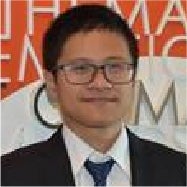
Assoc Prof Cai Zhenning
Department of Mathematics
Assoc Prof Cai obtained his PhD degree from Peking University, China. After two years of postdoctoral research as a Humboldt scholar at RWTH Aachen University, Germany, and one year at Duke University, USA, as a visiting assistant professor, he joined NUS’ Department of Mathematics in 2017. His research mainly focuses on the modelling of rarefied gas dynamics and the simulation of open quantum systems. In Academic Year 2020 / 2021, he received the faculty’s Excellent Young Teacher Award.
Numerical simulation of open quantum systems
No quantum systems are truly isolated. But can we simulate a quantum system coupled with the environment? Assuming that the environment is a harmonic thermal bath, we can effectively simulate the evolution of the system by integrating a number of techniques, including Frozen Gaussian Approximation and Partial Resummation. It is well-known that interactions between the quantum system and the environment can cause the system to exhibit classical-like behaviours. Our simulation shows that interference patterns in the density function gradually diminish as the coupling strength between the system and the environment increases.
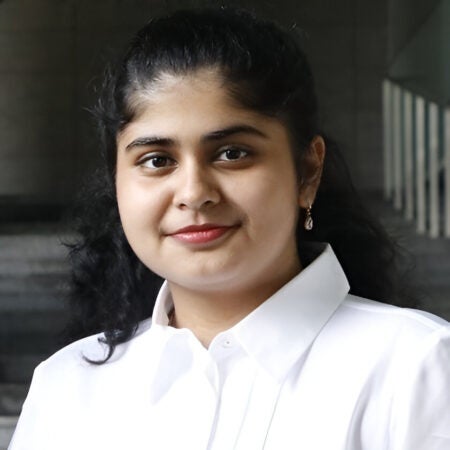
Ms Sneha Kumar
Department of Statistics and Data Science
Ms Kumar recently completed her BSc in Data Science and Analytics and is now pursuing an MSc in Data Science and Machine Learning at NUS. With a keen interest in machine learning and Artificial Intelligence (AI), she has participated in several hackathons and internships, working on generative AI, natural language processing (NLP), deep learning and data management projects with various companies. She was also the President of the NUS Mathematics Society, leading several events, such as Problemathic and Integration Bee, which generated interest in mathematics in the student community. Currently she is a Teaching Assistant in the Department of Mathematics, Faculty of Science.
Fostering mathematical engagement
This talk offers a reflective journey of Ms Kumar’s experience in the NUS Mathematics Society, primarily focusing on the society’s efforts and impact in cultivating enthusiasm for mathematics through competitions. From the Integration Bee, held in partnership with the Cambridge University Mathematical Society to the Singapore Cubes Championship, which drew over 200 participants, including international contenders, and campus-wide events like Sudoku and ProbleMATHic, these initiatives have played a significant role in building a community of mathematical enthusiasts at NUS and beyond. Ms Kumar will share insights into how these events have nurtured problem-solving skills, collaboration and a deeper engagement with mathematics. These competitions have become more than just contests, evolving into platforms that inspire, encourage intellectual curiosity and foster a shared passion for learning.
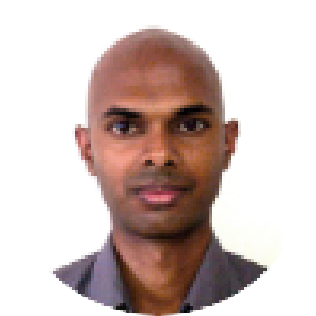
Assoc Prof Vik Gopal
Department of Statistics and Data Science
Assoc Prof Gopal graduated from NUS Mathematics and went on to complete his PhD in Statistics at the University of Florida, USA. He worked at the Centre for Strategic Infocomm Technologies and then IBM, before joining NUS in 2013, where he enjoys guiding students to unlock insights in data.
Teaching data science in practice
Data science is a fast-growing but relatively new field. While the analysis techniques used in data science can be taught in traditional ways, there is an aspect of data science that is not yet covered widely enough in schools. This corresponds to the practical side of the science – akin to a wet-laboratory component in biology or chemistry. In this talk, we will cover some methods and ideas that we use in our department to incorporate the practical aspects of data science. We will also demonstrate some projects to show the practical solutions our students come up with.

Assoc Prof Yao Yao
Department of Mathematics
Assoc Prof Yao Yao received her Bachelor’s degree from Peking University and her PhD from the University of California, Los Angeles. Her research focuses on the analysis of partial differential equations and their applications in mathematical biology and fluid dynamics. For her research contributions, she was awarded the prestigious National Science Foundation CAREER award (2018), Sloan Research Fellowship (2020) and Asian Young Scientist Fellowship (2023). She is also the Vice Dean of NUS’ Graduate School.
Understanding fluid dynamics and collective behaviour with partial differential equations
While fluid dynamics and the collective behaviour of animals seem to be two very different phenomena, they can both be effectively modelled using partial differential equations. This talk will describe the questions of interest in the analyses of these equations and the challenges we face. To overcome the nonlinear and nonlocal nature of these equations, we need to discover some “hidden structures” that are specific to each problem. To illustrate our approach, two such examples will be described: the aggregation-diffusion equation in collective dynamics and the Euler equation in fluid dynamics.
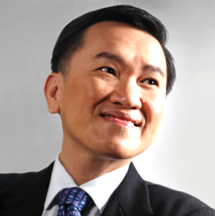
Prof Goh Say Song
Department of Mathematics
Prof Goh is NUS’ Dean of Admissions. He is highly passionate about education and has received numerous teaching awards, including the University Outstanding Educator Award (2009). His research interests are on the theory and applications of wavelets, approximation theory and harmonic analysis. He also participates in interdisciplinary research involving the practical use of mathematics. He received his BA (Hons) degree from the University of Oxford, UK and his MSc and PhD from the University of Michigan, Ann Arbor, USA.
Some reflections on the evolving pedagogies of teaching mathematics
In line with changes in the educational landscape over the past 30 years, courses in the mathematical sciences have significantly expanded, incorporating evolving pedagogies to achieve desired learning outcomes. This talk highlights a variety of approaches in teaching mathematics to students from diverse majors and academic backgrounds. Key aspects of these teaching methods are discussed in terms of preparing and engaging students in critical thinking, effectively challenging them, generating interest in mathematics and leveraging modern technological advances to enhance learning. Strategies and examples drawn from personal teaching experiences will also be presented as illustrations, offering concrete and practical ideas.
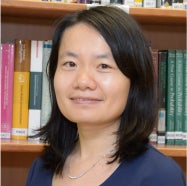
Asst Prof Wang Wanjie
Department of Statistics and Data Science
Asst Prof Wang spent two years after graduation on postdoctoral studies in statistics and biostatistics at University of Pennsylvania, USA, and obtained her PhD from Carnegie Mellon University, USA. Her research interests lie in high-dimensional statistics, social network analysis, spectral analysis and the applications of statistics in psychology, genetics and genomics.
The era of complex data
In the current era of Big Data, we are inundated with vast quantities of information daily, leading many to assume that greater data volumes inherently result in better insights. However, this is not always the case. This talk will first explore three domains where big data presents significant challenges: genetic data, network data and dynamic data. These examples illustrate challenges in big data and how statisticians understand them and can be seen as one aspect of data complexity. In real-world applications, data complexity can be seen in various ways, including intricate data formats, diverse sources and sophisticated models. These introduce significant challenges for statistical methodologies. The talk will explore these issues and discuss approaches to effectively handle complex data to enhance its reliability and interpretability.
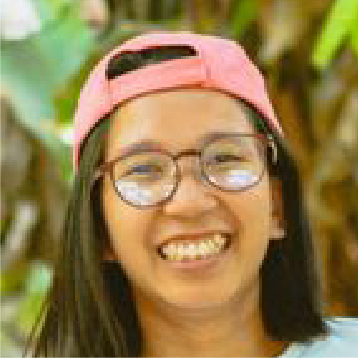
Ms Hien Mai Thanh
Co-Founder
Blue Sole
Ms Hien is a data scientist and entrepreneur. She has held management roles at top companies like Sea Limited, VNLIFE and Grab Holdings Inc, leading data science teams to tackle complex cross-industry challenges. After a successful stint at Google, Hien co-founded Blue Sole in 2023. Blue Sole’s first product, KarbonMap, is revolutionising forestry and agriculture management using Artificial Intelligence / Machine Learning innovation. Hien is now set to launch Eco-Invest Bridge, a blockchain-based technology platform to unlock crucial finance for nature. Her work bridges technology innovation and sustainability, driving real-world impact.
A joint call for action on climate change
Join Hien, a former Google data scientist, on her journey from technology giant to startup founder. In 2020, she left Google to tackle real-world challenges, eventually co-founding Blue Sole with her brother in 2023. Their first product, KarbonMap, blends Artificial Intelligence / Machine Learning innovation with purpose. Discover how her expertise in statistics and data science fuelled her entrepreneurial path and how her time at NUS shaped her mission to make a global impact. This talk isn’t just a story – it is a call to action to collaborators passionate about solving the world’s most pressing issue: our planet’s survival.
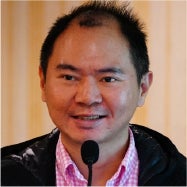
Prof Li Jialiang
Department of Statistics and Data Science
Prof Li obtained his PhD in Statistics and Masters in Population Health Sciences from the University of Wisconsin-Madison, USA. He is best known for his contributions to statistical methodology in diagnostic medicine, statistical learning and personalised medicine. He has collaborated extensively with medical researchers on numerous projects involving statistical analysis. Prof Li is recognised by the statistical community as an Elected Member of the International Statistical Institute, a Fellow of the American Statistical Association and a Fellow of the Institute of Mathematical Statistics. He also serves on the editorial board of various prestigious journals and on the Board of Directors of the International Chinese Statistical Association.
Efficient auxiliary information synthesis for cure rate model
We will discuss a new auxiliary information synthesis method to utilise subgroup survival information at multiple time points under the semi-parametric mixture cure rate model. After summarising the auxiliary information via estimating equations, a control variate technique is adopted to reduce the variance efficiently, together with a test statistic to check the homogeneity assumption. Revision using penalisation is further considered to adaptively accommodate potential population heterogeneity. Our methods can be adjusted when the uncertainty is not negligible. We will also establish asymptotic properties of our proposed estimators and demonstrate their practical performance through extensive simulations and an invasive breast cancer study.
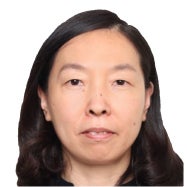
Assoc Prof Chen Ying
Department of Mathematics
Assoc Prof Chen, a financial statistician and data scientist, develops modelling, methods and algorithms customised for nonstationary, high frequency and large dimensional complex data in finance and energy. Her current research includes Artificial Intelligence (AI) forecasting and optimisation, quantum computing in finance, credit modelling and rating, citation analysis and research metrics, etc. She holds appointments at NUS’ Asian Institute of Digital Finance and NUS’ Risk Management Institute. She was also a Council Member of the International Statistical Institute and is Chairperson-elect of the Asian Regional Section of the International Association for Statistical Computing.
AI + quantum technologies for quantitative finance
This talk will introduce the integration of Artificial Intelligence (AI) and quantum technologies in quantitative finance, addressing the challenges posed by complex, high-dimensional datasets that traditional methods struggle to process efficiently. It will show how advancements in AI and the introduction of quantum computing are providing new tools for developing advanced mathematical models and computational techniques. The presentation will focus on practical examples from recent research, demonstrating their potential to improve predictions and decisions for modern financial problems.
Don’t miss this opportunity to dive into the world of scientific discovery!
An event organised by National University of Singapore, Faculty of Science
Watch this space for updates!
